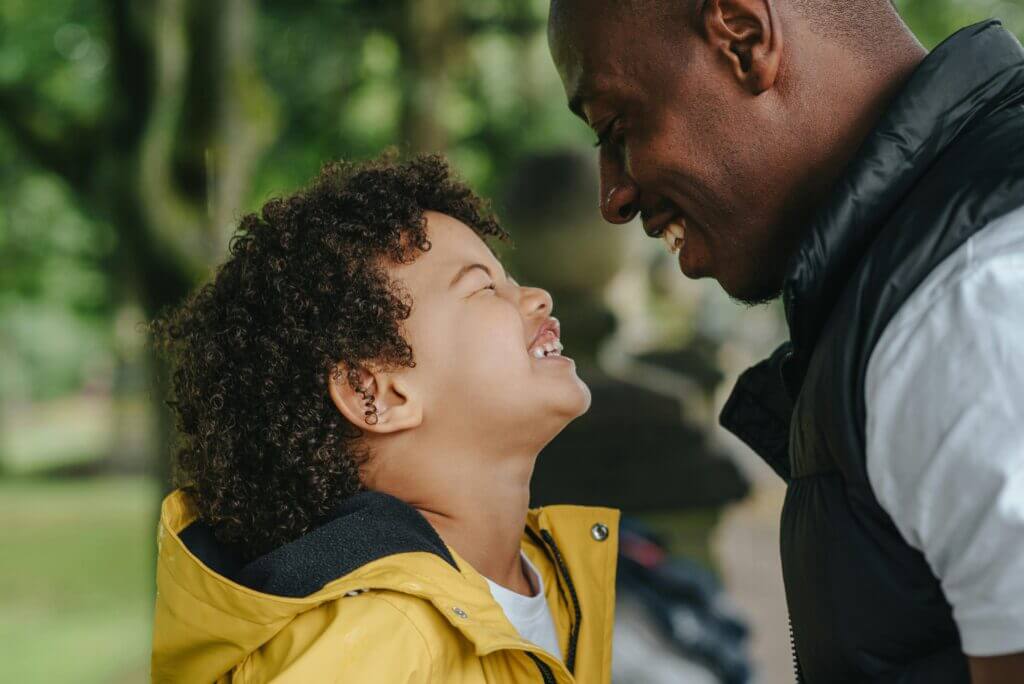Beyond Growing Pains: 10 Warning Signs From A Child Therapy Expert That Your Child Might Benefit from Therapy

As a parent, you know your child and you can tell when something isn’t quite right with them. Some of these signs can be very clear, but there are other signs that may be more difficult to identify. When it comes to a child’s mental health, it can be a challenge to know when to seek professional help. Mosaic Reflections Therapy understands these subtle differences and aims to help parents recognize when their child may benefit from therapy. Let’s explore the critical signals that demand attention, signs that could indicate it’s time to take a proactive step toward emotional wellness.
1. Changes in Mood or Behavior
One of the most noticeable signs is a significant shift in your child’s behavior or mood. This could manifest as:
- Increased irritability or anger
- Heightened sensitivity to rejection
- Withdrawal from social interactions
These changes might be reactions to stress, changes in routine, or indicative of deeper issues such as anxiety or depression. Notable changes in mood or behavior in a child can vary based on age, personality, and individual circumstances.

2. Academic or School-Related Challenges
Struggles in school can be a sign of underlying emotional difficulties. Look for:
- Decline in academic performance
- Loss of interest in learning
- Avoidance of school tasks
- Avoidance of peers or group activities
- Inability to focus or pay attention to school-related tasks
These behaviors may be linked to mental health challenges that impact cognitive functions and motivation.
3. Changes in Eating or Sleeping Habits
Significant changes in appetite or sleep patterns, that last more than a few days, often accompany mental distress. Be aware of:
- Excessive sleeping or insomnia
- Increased or decreased appetite
- Unexplained weight loss or gain
Such symptoms can be associated with emotional disorders such as anxiety or depression.
4. Unexplained Physical Symptoms
If your child is frequently expressing that they have a headache or stomachache without a clear medical cause then this can be your child’s way of expressing psychological stress. This phenomenon is highlighted in psychosomatic research. Children are typically developing their emotional regulation skills and may find it challenging to articulate and cope with their feelings. The mind and body are connected, and when children encounter emotional difficulties, their physiological responses (expression of having a stomach ache) may be triggered. When these potential connections in children are recognized, it is important to begin teaching children how to communicate their feelings and how to use coping strategies to self-soothe. By addressing emotional well-being and providing a supportive environment, we can help children develop healthier coping mechanisms, ultimately reducing the incidence of unexplained physical symptoms and promoting overall well-rounded development.

5. Development of New Fears
The sudden appearance of new fears, worries, or anxieties, especially if they interfere with daily activities, can indicate deeper issues. Children may develop fears to express or cope with internal emotional struggles that they may not fully understand or articulate. These fears can serve as outward manifestations of deeper anxieties, insecurities, or unresolved emotional issues. For instance, a child’s fear of separation from a caregiver may be linked to attachment issues or feelings of insecurity. Similarly, worries related to academic performance or social interactions may be rooted in broader concerns about self-esteem and identity. If these concerns are approached in a compassionate and supportive manner, it will help promote the mental well-being of your child. This allows for early intervention and the ability to learn coping mechanisms that can positively impact their overall mental health.
6. Regression in Developmental Milestones
Developmental regression is a temporary backward movement in a child’s skills or abilities, such as language or increased “baby talk”, social interactions, behaviors, or motor skills. This regression can signal the need for therapeutic intervention to work through underlying emotional or psychological challenges. Various stressors, including trauma, family disruptions, or significant life changes can trigger regression. A child therapist can play an important role in understanding and helping children navigate these challenges. When working with children, a therapist may use techniques such as play therapy, expressive arts, or other age-appropriate methods to create a safe space for them to explore and express their emotions. Through these therapeutic interventions, children can learn how to process their feelings, develop coping mechanisms, and gradually regain lost developmental ground.
7. Self-Harm or Talk of Self-Harm
Expressions of self-harm or suicidal thoughts are critical signs that require immediate attention. This can be extremely frightening when parents hear their child express things like, “I wish I was never born”, “I want to hurt myself”, or “I wish I were dead.” You may also witness your child self-harming by banging their head against a wall, hitting themself in the head, or pinching and scratching at their body. When these situations happen, it is important to seek help from a knowledgeable child therapist right away. Sometimes these expressions can be your child’s way of saying, “I have really big feelings right now and I need your attention.” If left unaddressed, these behaviors can lead to bigger actions that may become dangerous.
8. Loss of Interest in Previously Enjoyed Activities
A lack of enthusiasm for hobbies or pastimes they once loved can be a red flag. This disinterest can be due to a range of factors, including stress, anxiety, depression, or unresolved trauma. Child therapists have specific training to identify these behavioral changes as potential red flags and can provide a supportive environment for the child to express and explore their emotions. Through therapeutic interventions, therapists help children navigate and process their feelings, fostering resilience and aiding in the restoration of their previous interests and joys. Recognizing and addressing these shifts early on through therapy can play a big role in promoting the child’s mental and emotional health.

9. Use of Substances
Experimentation with drugs or alcohol, particularly at a young age, can be a coping mechanism for underlying issues. If you suspect your preteen or teenager to be experimenting with drugs or alcohol, seek support from a therapist immediately.
10. Difficulty with Transitions or Change
When a child faces significant life changes such as moving, changing schools, losing a loved one, or experiencing their parent’s divorce or remarriage, they may struggle to adjust. Such difficulties can indicate that the child may benefit from therapy. Children often find it challenging to navigate emotions associated with major life transitions. This struggle to adapt may lead to changes in behavior, academic issues, or social withdrawal. A skilled child therapist can offer a safe and supportive environment for the child to express and process their feelings. The therapist can also provide coping strategies and tools to help the child navigate the challenges of change. By exploring their emotions, the child can gain a better understanding of the transitions they are facing and develop resilience. Timely intervention by a therapist can help children adjust, foster emotional well-being and equip them with the skills needed to navigate life’s inevitable changes.
Taking the Next Steps
Recognizing these signs is the first step. The next is to seek help. Eleena Hardzinski, LMFT at Mosaic Reflections Therapy is dedicated to providing comprehensive support through Child, Teen, and Parenting Therapy. She creates a safe space for children and teens to overcome challenges and collaborates with parents to support your family’s overall well-being. To explore therapy options or set up a free consultation, visit Eleena’s contact page.

By being vigilant and responsive to these warning signs, we can offer our children the support they need to thrive emotionally and psychologically. Early intervention through therapy can make a profound difference in their lives, helping them to navigate the complexities of their inner world with guidance, understanding, and care.






